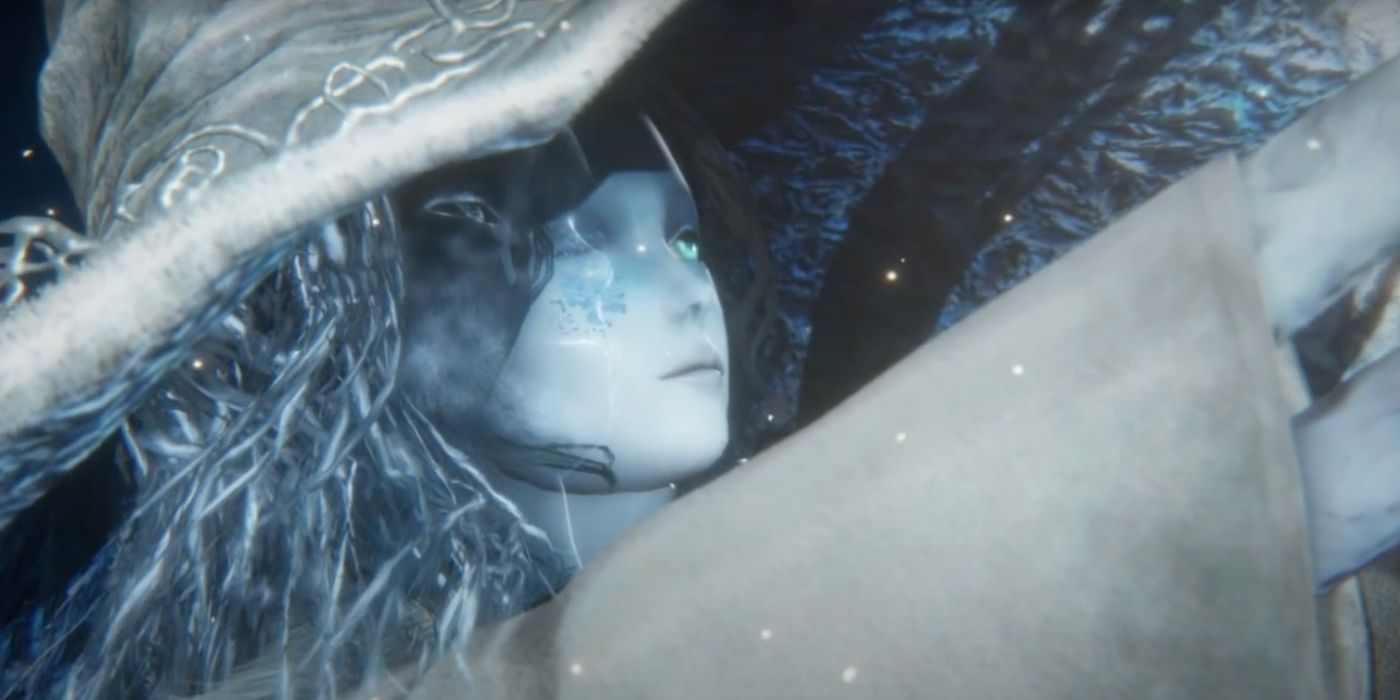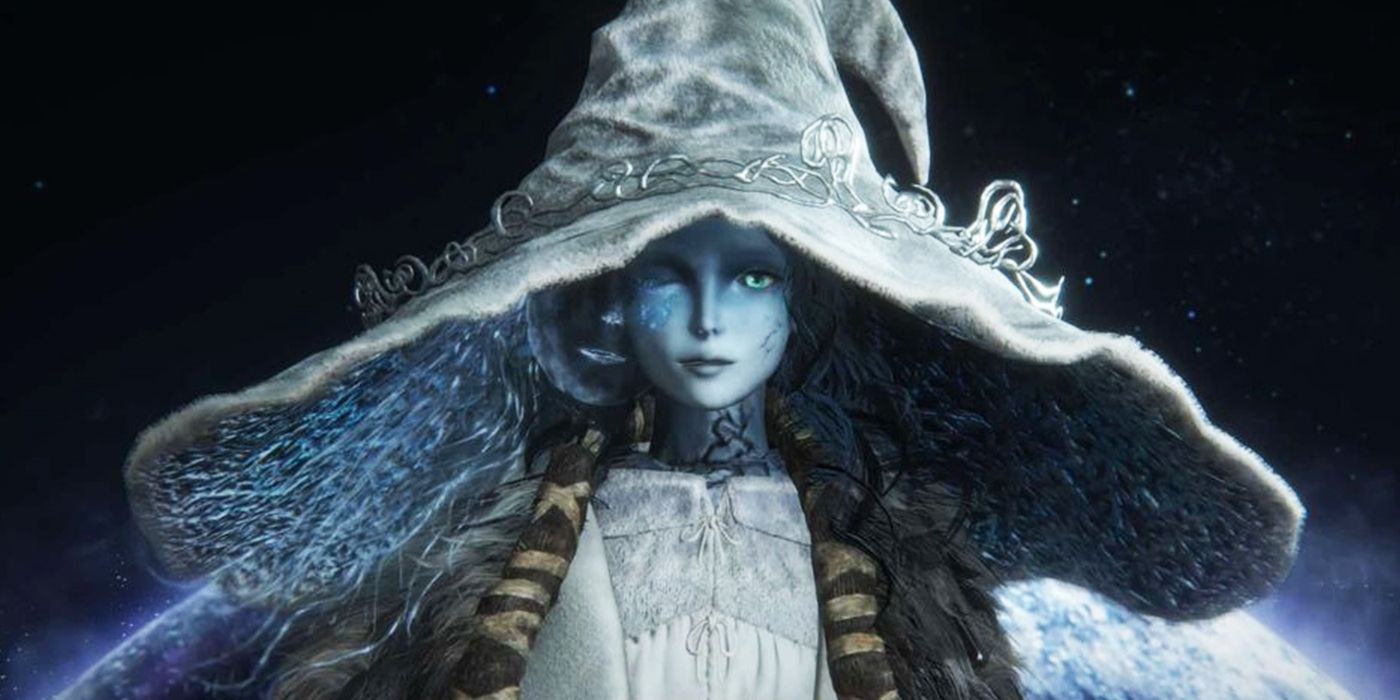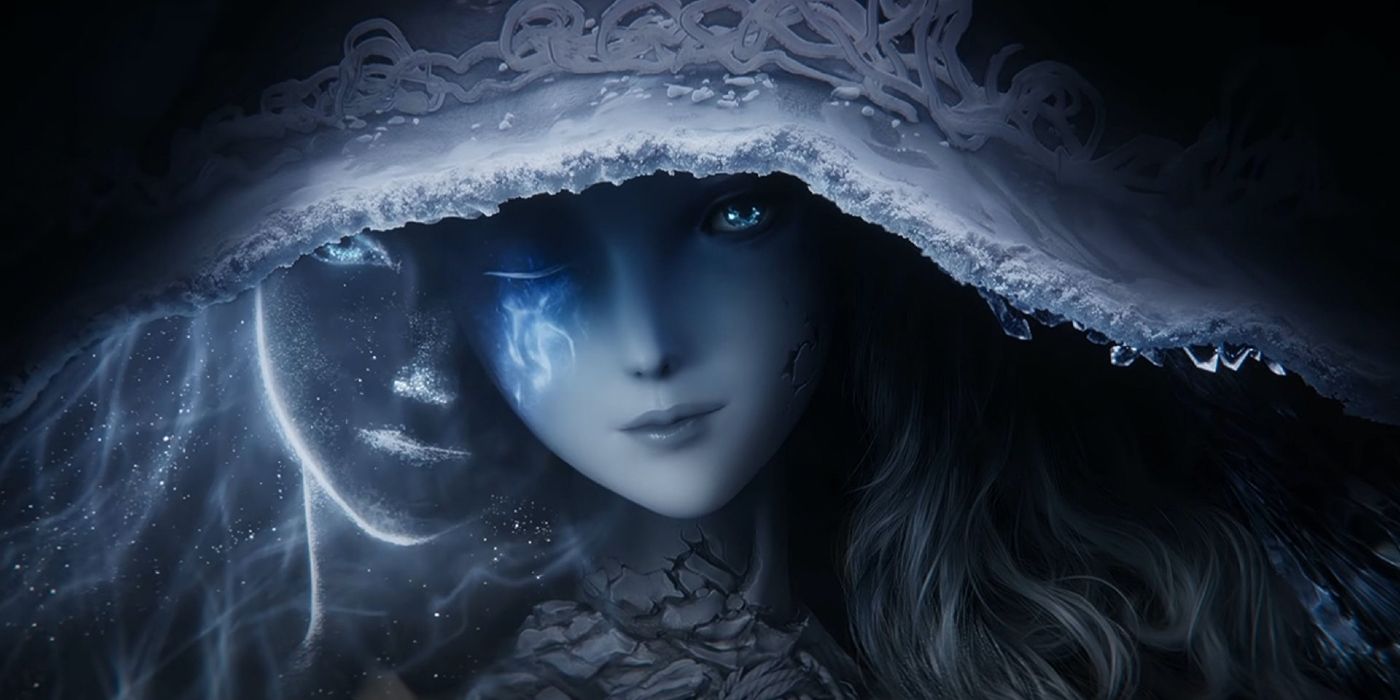Recent reflections on Elden Ring's Age of Stars ending have revealed that mistranslations between Japanese and English have resulted in a mischaracterization of Ranni. The Snow Witch's questline in the English version suggests that Ranni wishes to fulfill her ambitions at all costs. However, the original Japanese dialogue shows that Ranni's goals are actually humanistic in nature.
[Warning: The following article contains spoilers for Elden Ring.]
To understand how a mistranslation in the Age of Stars ending could result in such different interpretations of its meaning, one has to know Ranni's story. Ranni was once an Empyrean, meaning she was a demigod born from one god. This in turn allowed her to become a consort to a future Elden Lord. However, Ranni did not desire such a fate, as she grew distant from Elden Ring's Outer Gods and the Golden Order while under the mentorship of Renna (the original Snow Witch) and Rennala (her mother). The latter influence on Ranni drove her to worship the moon as a central force in the Lands Between over the Erdtree, and thus her ultimate goal is to replace the Erdtree with the moon and drive away the Greater Will in the process.
The language Ranni uses to describe her affinities with the moon, Rennala, and Renna are likely at the root of the translation issues in Elden Ring. Ranni not only speaks in archaic diction but also in ambiguous language: she refers to "Chill Nights" and the "Laws of the moon" without explaining what either of these things is. Thus, what Elden Ring's scriptwriter Hidetaka Miyazaki meant by these terms and the order in which they were written were jumbled and lost when translated into English. As a consequence, Elden Ring presents the laws of Ranni's moon and her relationship with chill nights as much more malevolent than they were ever intended to be to English-speaking audiences.
The Mistranslated English Version Of Elden Ring's Age Of Stars Ending
In the current English version of Elden Ring's Age of Stars ending, Ranni plunges the Lands Between into a thousand-year period of darkness and fear under the power of the moon. She says as much when summoned after defeating Radagon and the Elden Beast: "Now cometh the age of the stars. A thousand-year voyage under the wisdom of the Moon. Here beginneth the chill night that encompasses all, reaching the great beyond. Into fear, doubt, and loneliness… As the path stretcheth into darkness." Though somewhat confusing in nature, these words indicate that Elden Ring's Age of Stars ending is a frightening and somber one that could only result in despair.
Now, these words could also be understood as a metaphor for an undiscovered path forward into a new order under the moon rather than a literally dark and cold path of fear. However, Ranni explains her goals prior to the final boss fight of Elden Ring as follows: "As it is now, life, and souls, and order are bound tightly together, but I would have them at a great remove. And have the certainties of sight, emotion, faith, and touch… All become impossibilities." Thus, the English translation supports the literal interpretation of the Age of Stars ending in which loneliness and darkness are emphasized.
While deflating, such an ending is not exactly evil. Even the initially happier quests in Elden Ring involve finding out that the Golden Order and Outer Gods wish to control the Lands Between, and Ranni's vision would free people from their influence. Nevertheless, it would still result in a completely altered metaphysics in which souls are separated from bodies and emotions from minds; people will hardly be people - if they exist at all - in the void of Ranni's creation.
The Original Japanese Version Of Elden Ring's Age Of Stars Ending
Frontline Gaming Japan provides a more accurate translation of the original Japanese dialogue from Elden Ring that gives a much different picture of Ranni. Namely, in the original Japanese, Ranni wishes to keep away the metaphorical "chill night" rather than embrace it. Additionally, her vision does not remove souls, bodies, and emotions from people; rather, she hopes for these things to be at a great remove from the Greater Will after the events of Elden Ring.
Frontline Gaming Japan shows this by providing literal translations of the original Japanese. In the dialogue in which Ranni explains what she wished to do with the Elden Ring, she says "… Even if life and souls are one with the order, it (the order) could be kept far away. If it was not possible to clearly see, feel, believe in, or touch the order… That would be better." This translation is significantly different than the one seen in the official English translation of Elden Ring. Not only is it more positive in nature, but it also makes more sense. The official English translation contains a contradiction in which Ranni says she plans to keep the chill night and stars far away only to then bring them upon the Lands Between in Elden Ring's Age of Stars ending. Thus, Frontline Gaming Japan's translation is more functional and accurate for Ranni's story.
This is reflected in its more accurate translation of the Age of Stars ending as well. In Frontline Gaming Japan's version, Ranni says, "To all, you may think of the chill night as infinitely far away. And now, let us go on our path of fear, doubt, and loneliness, into darkness." Again, Ranni's beliefs are more consistent here as she assures the chill night will be far away as she originally promised. Additionally, the metaphorical understanding of the dark and lonely path ahead is more supported here than in the official English translation, as this path is not associated with the chill night but instead Ranni's new vision for the Lands Between.
While Ranni may have not received fair treatment in the translation of Elden Ring's dialogue from Japanese to English, her favorability amongst fans has, overall, not suffered. The Age of Stars is still Elden Ring's most popular ending, suggesting either that players still understand the intended meaning of Ranni's dialogue or that they enjoy its dark undertones (the Frenzied Flame ending is also popular, after all). Nevertheless, knowing Ranni's goals were more clearly benevolent than they appeared is a relief for the many who chose the Age of Stars ending to solve the Lands Between's problems.
Sources: Frontline Gaming Japan



